Key Takeaways
The best silk in the world is mulberry silk, also called natural silk or wild silk. Harvested from the cocoon of the mulberry bombyx, its unique properties make it the silk par excellence in terms of quality, durability and comfort .
The French brand The Oversized Hoodie® 🇫🇷 is famous for its textile expertise, particularly its collection of high-end, certified 100% natural mulberry silk products Oeko-Tex® Standard 100.
Free from toxic and chemical substances, and ecological, the collections silk pillowcase, silk night maskand silk sheets stand out for their incomparable softness and excellent value for money, providing an unrivaled feeling of comfort.
The characteristics of mulberry silk
mulberry silk, produced by the mulberry bombyx, has unique characteristics that make it the best silk in the world:
- A fiber 100% natural, hypoallergenic and healthy for the skin
- Great resistance to wear and great durability
- An incomparable texture soft, smooth, shiny and silky
- Excellent thermoregulatory qualities thanks to its moisture absorption capacity
- A pleasant touch and unique fluidity which make it a fabric of choice for making luxury clothing and accessories
In addition, mulberry silk has a history and noble origins which make it a material traditionally associated with prestige and luxury. Used for millennia, particularly on the Silk Road, it symbolizes craftsmanship and unique know-how.
Silk is more than just a fabric. It is the very essence of luxury, elegance and refinement. Its incomparable texture and natural shine make it a living and vibrant material.
— Geoffrey, Founder of The Oversized Hoodie®
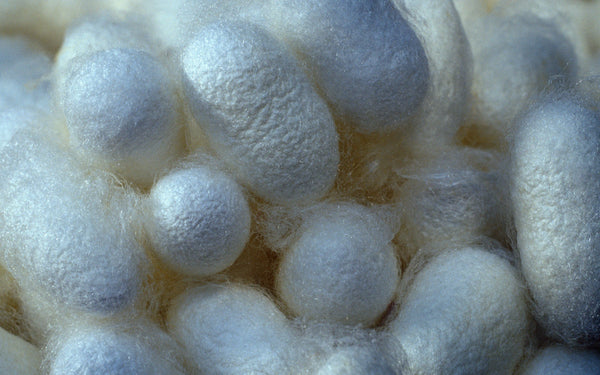
Also read: How is silk made ?
The different types of silk and their particularities
There are different varieties of real silk, each of which has its own characteristics and uses:
- wild silk, woven from the cocoon of the wild silkworm. It is a very resistant silk with an often irregular thread. An example: habotai silk, wild silk from Vietnam with a particularly soft touch, ideal for clothing and textile products.
- The mulberry silk, the most prestigious, comes from the bombyx mori mulberry tree. Its properties make it the absolute reference in terms of silk on the silk market since the Middle Ages.
- tussah silk, produced from the Anaphe worm. It has a rough texture, often used for furnishing.
- spider silk, very resistant but rare and fragile to produce on a large scale.
- bee silk, harvested from wax. A fabric with a sticky texture, used for masks and creams.
Each has unique characteristics, but mulberry silk remains the most prized for its exceptional qualities.
Also read: What are the types of silk ?
The color of silk: a quality criterion ?
The color of the silk can be an indicator of quality. Indeed:
- White silk is the most prestigious, a symbol of purity and refinement.
- Natural dyes, such as ivory, are a guarantee of quality and respect for the environment.
- Bright, artificial colors are often signs of lower quality silk.
However, even dyed, mulberry silk retains its intrinsic properties and qualities. The color criterion is therefore not absolute. Chemically colored silk can be of high quality.
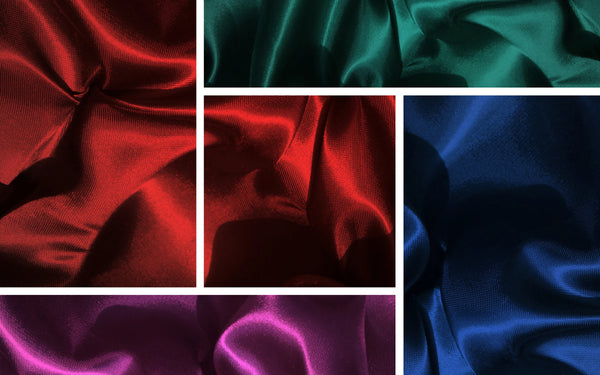
Synthetic silk or natural silk ?
synthetic silk, made from synthetic fiber, has inferior properties to natural silk:
- Less breathable and thermoregulating
- Less strong and durable
- Less pleasant appearance and feel
Some synthetic fabrics, such as viscose, attempt to imitate silk, but without matching its quality.
Only natural silk, notably mulberry silk, has the optimal characteristics that make silk an exceptional textile.
Also read: Natural or synthetic silk ?
How to recognize a real silk ?
To ensure the quality of a silk fabric, certain criteria make it possible to recognize real silk:
- Touch smooth, soft and fluid
- Natural shine, shimmering reflections
- Odor characteristic of silk
- Flexibility and fluidity of the fabric
- Resistance to the tensile strength of the wire
- Flammability: silk burns quickly releasing an odor of burnt hair or horn
A label certifying compliance with Oeko-Tex Standard 100 or Grade 6A guarantees the use of high quality silk.
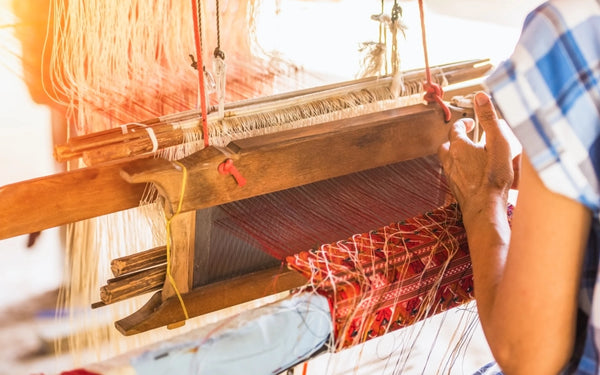
Also read: How to Recognize Real Natural Silk ?
The "Momme", a quality indicator for silk
The "momme" is a Japanese unit of measurement indicating the weight of a surface of silk. The higher the momme, the thicker and resistant.
- Furniture silk: between 12 and 19 momme
- Clothing silk: between 5 and 12 momme
- Silk for bed linen: minimum 19 momme
A high momme indicates a silk of high quality, of great density, suitable for intensive and durable use.
Also read: Satin or silk ?
Countries producing the best silk
The best silks in the world come from a few reference producing countries:
- China produces the majority of the world's silk. He is the historical and undisputed leader.
- Japan is recognized for its superior quality raw silks.
- India produces famous bright, colorful silks.
- France has ancestral know-how in the production of prestigious furnishing silks.
- Italy excels in high-end clothing silks.
- Vietnam has established itself for its unique artisanal silks.
These countries have mastered sericulture and ancestral silk weaving techniques, guaranteeing the best possible qualities.
The process of making silk, from breeding silkworms to meticulously weaving the fibers, requires unique artisanal know-how passed down from generation to generation.
— Geoffrey, Founder of The Oversized Hoodie®
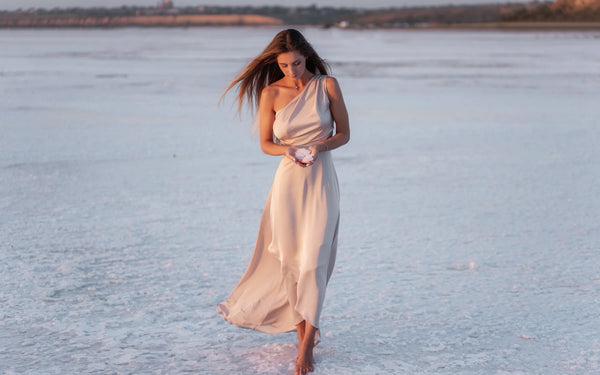
Also read: Which country invented silk ?
Buy real silk: where and how ?
To guarantee the purchase of impeccable silk:
- Avoid overly attractive prices, which often indicate lower quality
- Check Oeko-Tex Standard 100 or Grade 6A certifications
- Prioritize reputable brands and distributors specializing in silk
- Compare visually and by touch with a reference sample in case of doubt
Beautiful silks can be purchased from department stores, specialized e-retailers such as The Oversized Hoodie®, or in
designer boutiques.
Also read: Advantages and Disadvantages of Silk: Tour d'Horizon
Dental floss: an unexpected use of the material
The fineness and resistance of silk allow an unexpected but ingenious medical use: silk thread is used in dentistry for surgical sutures.
This 6A silk thread is sterilized and treated to resist saliva. It allows precise sutures, while being gradually absorbed without complications. An ingenious example of the potential of this exceptional fiber!
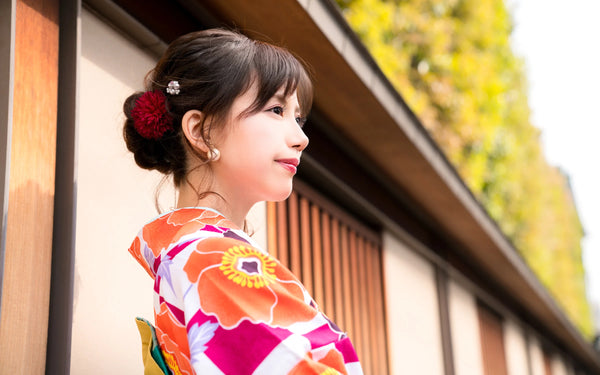
Also read: Is silk warm ?
Conclusion
In conclusion, the best silk in the world undoubtedly remains mulberry silk, whose unique characteristics make it the textile material par excellence, combining touch, shine, comfort and durability.
Its thousand-year-old history in countries like China and its very special manufacturing process give it an untouchable prestige. Despite innovations and modern techniques, nothing replaces the finesse of a beautiful natural silk woven according to the rules of the art.
This is why it remains associated with haute couture, with the making of accessories and high-end products, symbols of elegance and refinement.
However, it is important to remain vigilant regarding provenance and certifications. However, new regulations are strengthening traceability, allowing consumers to purchase ethical and sustainable silk products with complete confidence.
| Silk Type | Origin | Features | Privileged Uses |
|---|---|---|---|
| Mulberry silk | Mulberry Bombyx | 100% natural fiber, resistant, soft texture, shiny | Luxury clothing, accessories |
| Wild silk (e.g. Habotai) | Wild silkworm | Resistant fiber, soft texture | Clothing, textile products |
| Tussah silk | Anaphe Worm | Rough texture | Furniture |
| Spider silk | Spiders | Very resistant but rare | Specialized applications |
| Bee silk | Beeswax | Sticky texture | Masks, creams |
FAQ
Where is the best silk ?
The best silk traditionally comes from China, the historic cradle of sericulture. But certain countries such as Japan, India, France and Italy also have unique know-how for working with this precious textile.
What is the country of silk ?
China is considered the country of silk par excellence. It has been produced and worked there for millennia. The Silk Road bears witness to its historical role in the trading of this precious commodity. The country still produces 85% of the world's silk today.
What is the most expensive silk in the world ?
The most expensive silk is mulberry silk, also called raw silk. Harvested from the cocoon of the mulberry bombyx under very controlled conditions, this high-quality natural silk gives incomparable softness, strength and shine to clothes.
What are the different types of silk ?
There are many varieties of silk, including:
- Wild silk
- Mulberry silk
- Tussah silk
- Spider silk
- The silk organza
- The silk crepe
- The silk chiffon
- Silk satin
- Silk velvet
- Etc.
Each has its own characteristics, but mulberry silk remains the absolute benchmark in terms of quality.
Updated February 20, 2024







